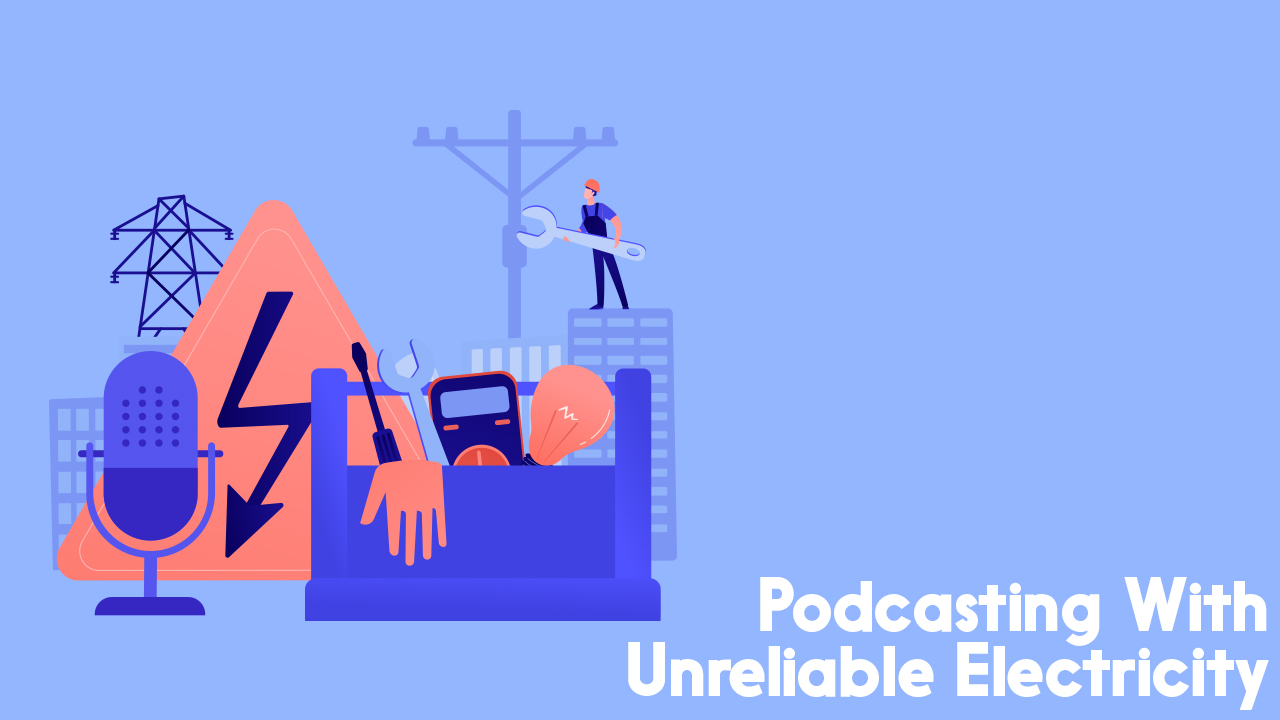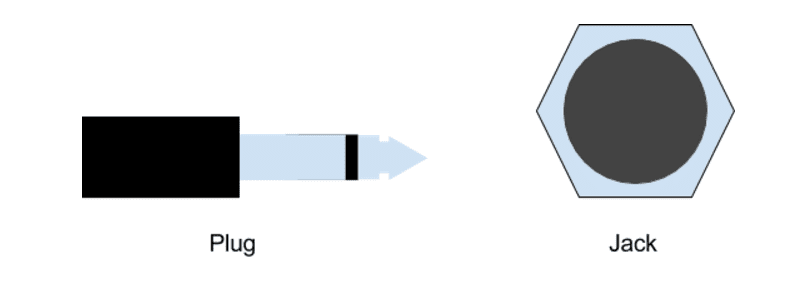Understanding Audio Cables: Do You Know Your RCA From Your Elbow?
Understanding Audio Cables: At-a-glance
- They might not be the most glamorous part of your recording setup – but they are a vital part of it.
- Some folks use USB (digital) mics, whilst others use XLR (analog).
- Other types of audio cables range from RCA, to phone cable and speaker wire.
- In this article, we talk Balanced Vs Unbalanced, Jacks Vs Plugs, and the difference between TS, TRS, and TRRS.
- Read on for our full guide on choosing the right audio cables for your setup…
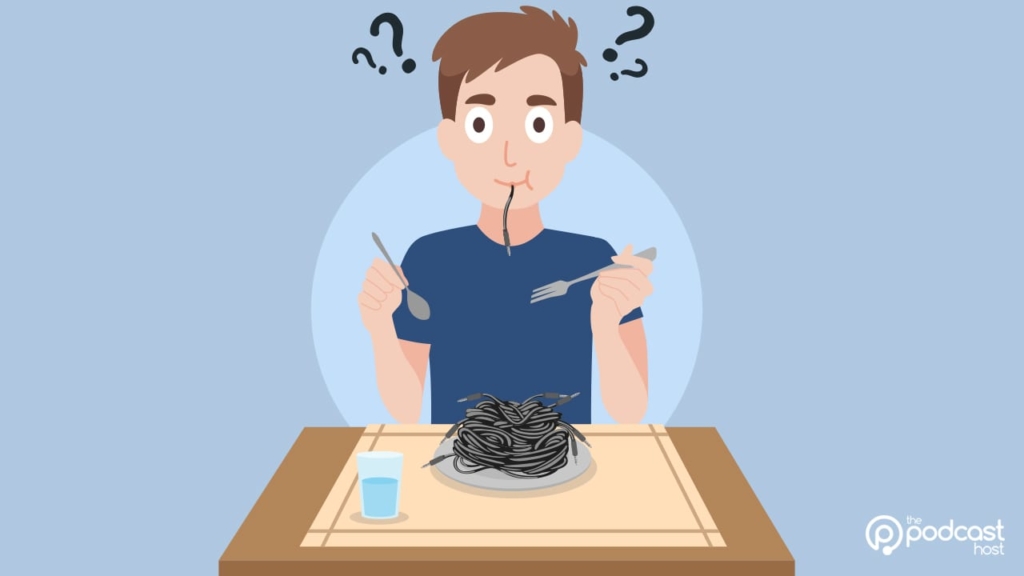
Audio cables! They plug your stuff together. What’s more to know? Right? As unsexy and unfulfilling as cables are, they’re probably the most common piece of equipment type in your studio.
There are all kind of different cables. You’ve got power cables, mic cables, speaker cables and instrument cables. Lightpipe and digital coaxial cables. And once you realize the volume and scope of what cables do in your everyday workflow, you suddenly realize their grand importance.
But they’re still pretty boring when compared to things like mics and digital recorders.
However, given some basic tips, you (like I) can think about your cables as little as necessary while still giving them the respect they deserve. Here, we’ll look at cables commonly used in podcasting setups, with particular attention to microphone and monitor cables.
When it comes to untangling them, you’re on your own. But here are a few helpful hints to help you on your way to properly forgetting about cables, so I can forget about them, too.
Related Article
Tips for Podcasting With Unreliable Electricity
Podcasting from somewhere that has unreliable electricity? Here are a few quick tips for getting your work done. Find out more »
Power Cables – What You Should Know
There are three very important things to understand about power cables and your audio setup. A few quick checks before you hit record can save you a lot of time and hassle in the post-production and editing phase:
1. Don’t Cross the Streams
That is, don’t let electrical cables cross your audio cables. Electrical cables can produce electromagnetic interference that when crossing an audio cable produce a low pitched tone or buss. This is the dreaded 60Hz hum (50Hz in Europe).
2. All AC Power Cables Should Be Grounded
Most of your equipment will already be properly grounded. It’s important to maintain proper grounding by not using adapters to adapt to improper and ungrounded extension cords. Improper grounding produces unwanted noise in the system and we want to record clean audio with as little unwanted noise as possible.
3. Ground to the Same Ground
Ground loops can be nasty, both to your audio signal and in terms of finding the source of the unwanted sound assassin. A ground loop is typically caused by plugging one piece of grounded audio equipment into a power strip powered by one AC outlet, plugging another into a powerstrip powered by another outlet and then plugging the two pieces of equipment together via an audio cable. The ground signal (that 60Hz/50hz hum!) travels along the shield in the cable and causes a ground loop. To avoid this, ensure all equipment is plugged into power strips on the same outlet.

What About USB?
I want to talk briefly about USB. I often get questions about USB microphones and USB audio monitors (AKA speakers) versus XLR or other options. Quite simply, the decision between USB and analog connections is largely up to you, your team or any producers and engineers you might work with. In general, you’ll want to consider your budget, scope and workflow to determine what works best for you.
In my studio, analog (XLR) microphones are a must. I use microphones in the field and on the go in a number of different environments and scenarios. I use them to microphone fruit for sound design purposes. I purposefully drop them in water. In the studio, I am apt to record many voice talents at once through a single device.
If you need your arrangement to be flexible and mobile, require long cable runs, or want to use multiple mics, you’re likely going to want to look at analog solutions.
Should I Use a USB Mic?
If you’re a one-voice, one mic operation (a voice actor or single podcast host, for example), a USB solution may suit your needs and workflow well. If that’s the case, check out our guide to the best USB mics on the market right now.
If you’re a one-person-one-recorder on-the-go operation, a USB microphone and a USB to micro USB adapter can often be used in conjunction with your smartphone and produce excellent results.
So which is better? It’s layered, and arguable. Pound-for-pound, the Rode Procaster and Rode Podcaster perform equally well. However, a cheap consumer USB microphone can be the audio equivalent to a Barbie microphone. USB microphones also have a built-in microphone preamp (mic pre) that will affect the sound differently than the preamps in your recording setup. Overall, however, there isn’t much of a noticeable difference between USB and XLR versions of the same microphone.
For performance, flexibility and adaptability, nothing beats an XLR microphone. If you’re going to be working with others or alternating between live a studio situations, XLRs are standard. Most professional equipment is fitted with XLR inputs and XLR is easily used in TS and TRS (more on these soon!) jacks using a simple adapter.
If you’re a podcaster who wants to use an XLR mic (or two) but loves the simplicity of USB, then you might want to look into getting yourself a USB audio interface.
Audio Cable Connections: Jack vs. Plug
The most basic terms to understand when it comes to audio cables refer to the cable and equipment connectors and how they connect. Those are Jack and Plug.
Plug refers to the end of the cable that inserts into your equipment, typically a male end of an RCA or Phone jack.
The simplest way to remember this is that a plug is inserted into a jack. Plugs tend to be male. Jacks tend to be female.
How Cables Cable
The principles of operation are fairly simple. The electrical signal from the audio source travels along a conductor inside the cable and returns along a second conduit or shield. Think of like in a basic electrical circuit because it is a basic electrical circuit.
Balanced vs. Unbalanced Audio Cables
The primary difference between balanced and unbalanced cables is that balanced cables return the electrical signal along a secondary connector instead of carrying it along the cable shield where ground noise and electromagnetic interference can cause hum in the signal.
The process works similar to a ground in an electrical outlet, isolating the audio signal from electromagnetic interference and ground current. In general, it is always advisable to use balanced cables. However, heavy-gauge unbalanced cables less than ten feet long will provide adequate hum rejection, if necessary.
So, why do unbalanced cables exist at all?
A few reasons. In the studio, unbalanced cables are used as instrument cables to plug guitars, basses and keyboards into amplifiers. Instrument cables also cost less and provide adequate hum rejection for most home recording and home stereo situations. It is also far simpler to run unbalanced cable for vehicle and household audio needs, as an added conductor increase cable width. In short, they are primarily for consumer use, or for other applications where professional sound quality isn’t a factor.
Gauge
Gauge refers to the thickness of the wire used in a cable. Gauge affects sound through impedance (or resistance). Think of it like a PVC pipe. The wider the PVC pipe, the more water can travel through the pipe at once. The same is true of electricity and wire gauge: the thicker the copper, the more audio signal can travel through at once.
The most confusing thing about gauge is how the numbering works. Counterintuitively, a smaller gauge refers to a thicker wire and therefore less impedance. In general, heavy gauge wire between 12 and 16 gauge is suitable for most audio cables (remembering the 12-gauge is thicker than 16-gauge).
In most applications, gauge is not something you’ll have to think about often, but it comes up from time to time in cheaper-made cables, especially unbalanced.
Types of Analog Audio Cable
For the most part, analog audio cables break down into four different types:
- XLR
- Phone Cables
- RCA
- Speaker Wire
Speaker Wire
Speaker wire, in general, is used for consumer audio and live audio applications (though I have certainly been known to use it in my studio from time to time). In general Speaker wire is unbalanced and should be avoided for any other purpose than listening to music.

RCA
RCA cable is used in studio applications to connect CD, tape and record equipment and various consumer-grade equipment into mixing boards and recording devices. RCA is also used for S/PDIF (Sony/Philips Digital Interface Format) digital audio interfaces. When used as an analog source, however, they are unbalanced and should be avoided whenever possible. In a pinch, a USB-based solution will likely provide better sound quality than its RCA equivalent without potential for line noise or hum.
Phone Cable
Phone cable is by far the most common cable in both studio and consumer audio applications.
Pull out your trusty pair of earbuds and this is the plug you’ll see on the end of the cable.
You can easily find out the way it works by counting the number of rings on it.
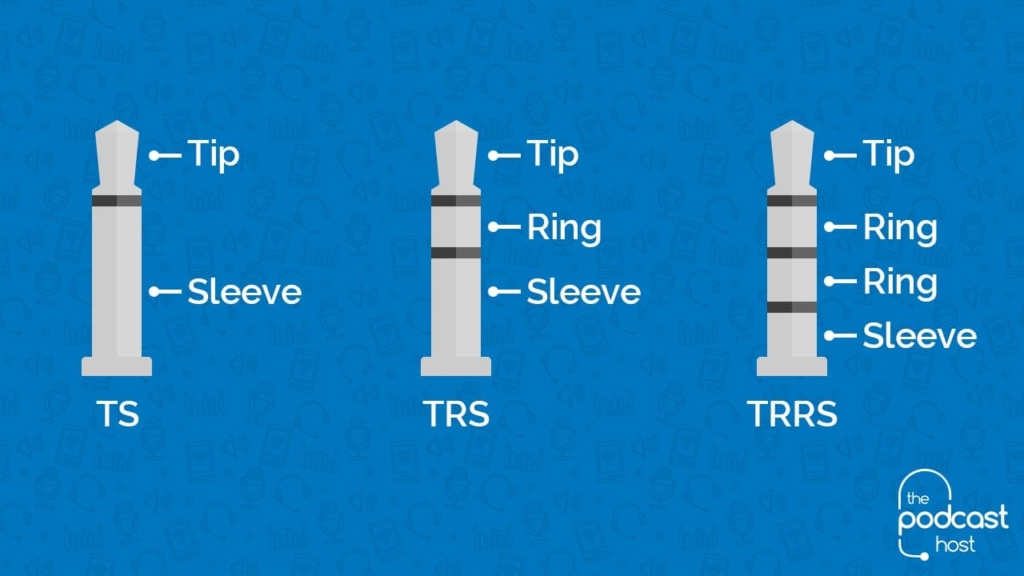
1 Ring = TS (Tip-Sleeve) or various “mono” plugs
TS cables are single conductor, unbalanced cables.
Applications: Patch cords, instrument cables, unbalanced microphones.
2 Rings = TRS (Tip-Ring-Sleeve) or various “stereo” plugs
TRS cables are dual conductor, unbalanced cables.
Applications: Balanced microphone input, balanced monitor cables, unbalanced stereo input, stereo headphones.
3 Rings = TRRS (Tip-Ring-Ring-Sleeve)
TRRS cables are three conductor wires, unbalanced cables.
Applications: Typically used for microphone/headphone inputs for cell phones, tablets and other small electronics.
XLR Audio Cables
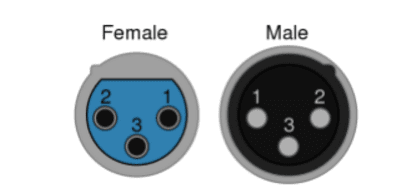
If you’re not using a USB mic, it’s likely you’re using an XLR model instead.
XLR is pretty much the standard in microphone applications as well as professional audio equipment for use in live and studio sound. It consists of a pin 1 ground connected to the cables shield and two conductors carrying the balanced audio signal.
If you’re looking for a technical definition, XLR is a 3-pin professional audio standard connection type for balanced microphones and balanced recording equipment.
Common XLR mics in podcasting are the Rode Procaster, the Shure SM58, and the Samson Q2U (which also works as a USB mic).
Audio Cables: Key Takeaways
So, there you have it. Cables! To wrap up, here’s our advice:
- Solo or online interview podcasters can get by just fine with a USB mic setup.
- Want to run a couple of XLR mics into your computer? Consider getting a USB audio interface.
- To record multiple XLR mics free from a computer, a digital recorder is a great option.
Remember to check out our full podcast equipment guide for everything you need to record, produce, and publish a podcast. And we run weekly live Q&A sessions in Podcraft Academy if you’d like the added benefits of ongoing support, advice, and guidance!
